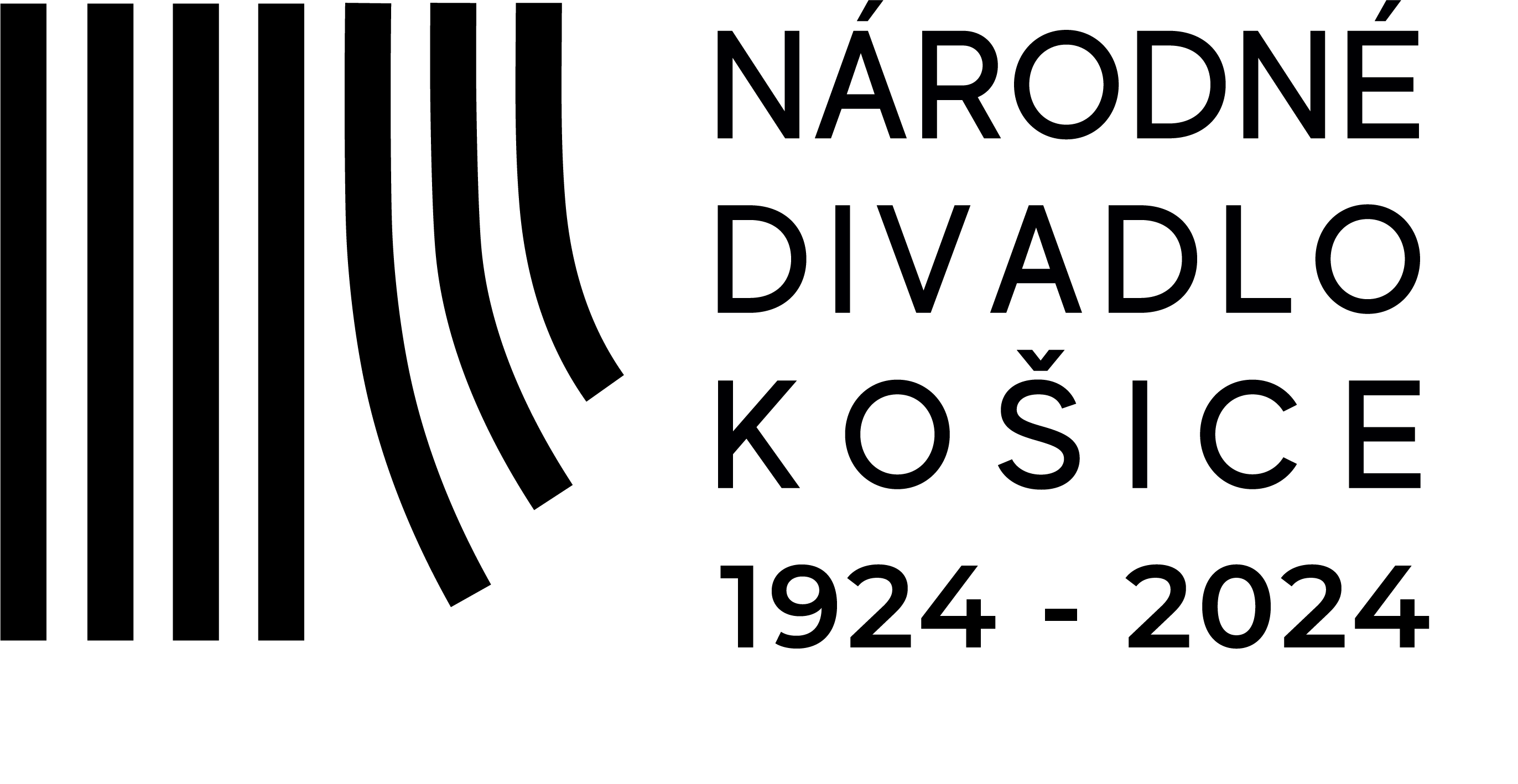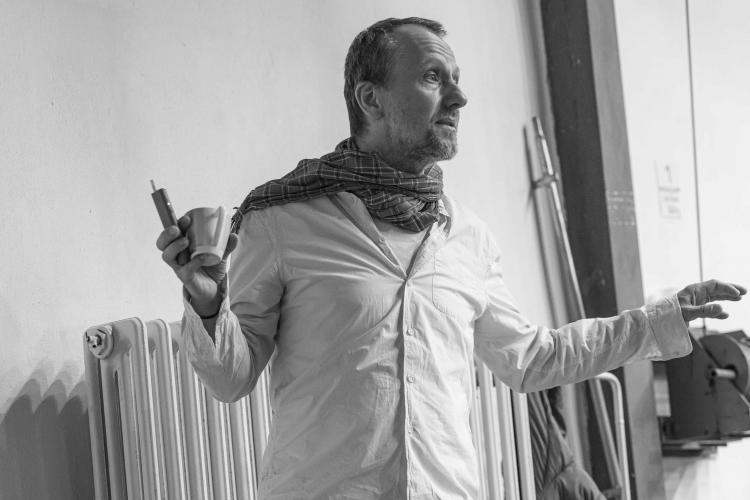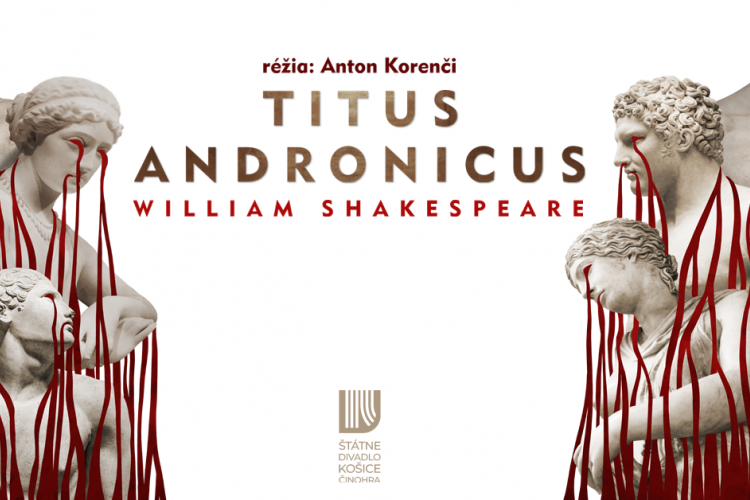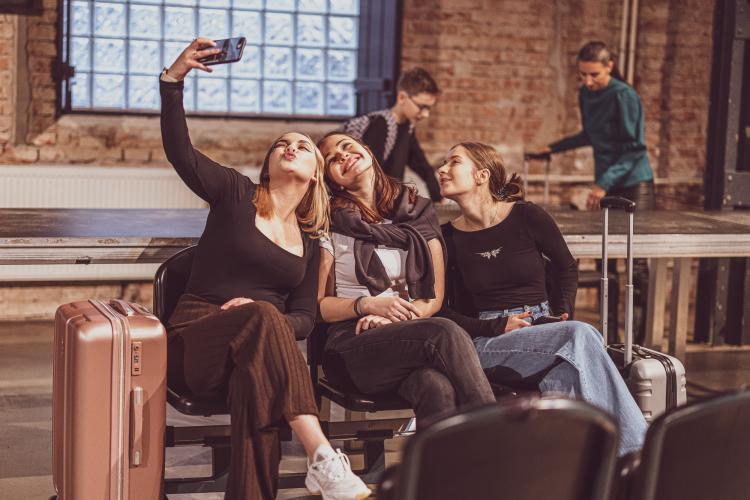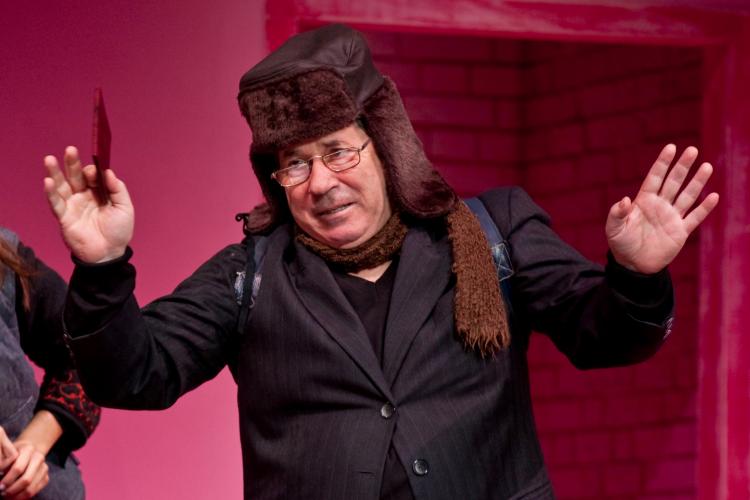As a student of the Academy of Performing Arts, Borodáč was condemned, in the preparation of the stagings of Borodáč or Three Sisters, gradually revealed the ingratitude of the position to be the first, to be a teacher, to be a founder, to be a director in a given political and social context. We spoke with director Julia Rázusová before the premiere of the drama staging of the play by Karol Horák, Michal Ditte and Michal Baláž Borodáč or Three Sisters, which will be the first premiere of the Košice Theater in the new season on Friday 25 September at 7pm in the Historical Building of the Košice State Theater.
As a director, what attracted you most when accepting the offer to participate in this unconventional theater project Borodáč or Three Sisters?
We started the Janek Borodáč theme for the first time with Petr Himič on the IC train from Košice to Bratislava. At the moment, it seems very symbolic to me, as Borodáč's professional and private life took place in the tension between east and west. During a random encounter on the train with Peter, we came across a number of interesting moments, situations, parallel with contemporary artistic events. Although Borodáč's private life does not offer dramatic life turbulence, nor scandals of bohemian artistic life, it carries in it what present man lacks - consistency. It is also in his case a kind of “American dream,” when a boy from the poorest district in Prešov becomes the founder of Slovak professional theater. Last but not least, I was attracted to this topic by Janek Borodáč's genius loci in relation to the Košice theater, Borodáč's political controversy and, in simplicity, the story of a man - an artist in his ups and downs.
The text came from the pen of three authors of three generations. When editing it, was it difficult to combine different authorial styles, certainly also a diverse language, into one whole?
It was a great challenge, but it is this diversity of texts that I take as our advantage. A great support and source of information for the whole implementation team were meetings with theater scientist Karol Mišovic. I can't imagine this project being created without him. When I came across Borodáč's direction of Three Sisters in Košice, the concept of linking texts became clear to me. Chekhov’s theme of desire for self-realization and the big city. Three Sisters, each naming the motives of Borodáč's life differently. Through Olga we observe the career life and fate of married life without children, Masha confronts Borodáč in his conservatism and cumbersome attitudes in art, Irina raises the topic of going to the capital city. It was a great enrichment for me to read Borodáč's directorial book on the Three Sisters, as well as his personal notes. I was very surprised by the rich psychological analyses of characters and insight.
Each of the authors devoted himself to a different aspect of Janek Borodáč's personality and life. Was this also the reason for the unconventional staging of the staging, which takes place on several stages?
Together with dramaturge Miriam Kičiňová, the authors were asked about topics from Borodáč's life. Karol Horák focused on childhood and a part of his life before the artistic journey, Michal Ditte processed the labour-productive period of his life in the artistic community, Michal Baláž depicts the grotesque “Monty Python” optics of the peripatetic man at the end of his life. The situation processed by all three authors is Borodáč's wandering in Prague on the way to the Conservatory entrance exams. Since we processed the authentic story of the Košice theater together with the artist Markéta Plachá, we knew from the beginning that we wanted to play in other parts of the theater. The director's space during rehearsals is an auditorium, e.g. directional (stage) table where Borodáč is often depicted. After returning to Košice after the war, Borodáč family came to the destroyed premises with their chairs torn out and without a single light bulb. All this determined the concept of multiple stages, the use of contemporary theater technology, or the quotation of the original scene from Borodáč's Three Sisters.
Every Slovak theater creator encounters the name Janko Borodáč already during studies. When preparing the staging, did you find out something about this co-founder of the Slovak professional theater that may have surprised you or was something new for you?
I'm one of those students of the Academy of Performing Arts who immediately condemned Borodáč during the lectures. For me, it was the embodiment of the old theater, which shaped the development of the Slovak theater in the coming years in a very conservative and realistic direction. Until now, teachers who were his students were still teaching at the Academy of Performing Arts. Where have we progressed in these 100 years of professional theater? Do students study differently at the Academy of Performing Arts in 2020? What's remained? A lot of questions arise regarding his expertise in Stanislavski’s actor training. Gradually, as I penetrated the context of his personal and artistic life, I revealed the ingratitude of the position to be the first, to be a teacher, to be a founder, to be a director in a given political and social context. It was important for me not to base myself on assumptions, unproven facts and, conversely, to hold myself accountable for actions and decisions. The staging wouldn't make sense if it was just a confirmation of a label. The theater has to go deeper.
The script is challenging also for actors. Most of them depict several figures in scenes in which the backstage of the theater, private life or the stage of the Košice theater itself from several decades ago overlap. How did you deal with this diversity with them?
On the first readings it was chaos to orient yourself in the life of a man who was born in the last century, survived both wars, regime changes... We had to go slowly hand in hand with a thorough knowledge of our history, visits to archives, joint projection of available film documents. Actors had a difficult task dealing with a number of characters from the Czechoslovak artistic or political environment. Gradually, they received a number of study materials in their e-mails, which they involved in the creation of characters throughout the rehearsal process. They also participated in some texts within improvisations as authors. We were looking for some important features to draw out the essence of a given character, to create it within a given acting style. We experienced a small thesis examination from the history of Slovakia and Slovak theater. Representatives of Borodáč worked intensively on the character several months in advance. Music composer Michal Paľko even found an authentic recording of Borodáč's accordion play to come out of it while preparing the music for the staging. I'm glad we didn't stick with the Borodáč cartoon.
The very preparation of the premiere was interrupted due to the COVID-19 crisis in March. You finished it before the theater holidays, it will premiere at the end of September. From the director's point of view, what was the most difficult part of such an “unusual” rehearsal period of the staging?
I will probably be able to answer this question best after the premiere, when I will see the result of this intermittent process. I remember that feeling when we stopped rehearsing in March. All I could think about was making one last rehearsal to keep our work on record. We were in contact with the whole team during the COVID-19 crisis, and the actors came back to the process perfectly prepared. In June, our work was very productive. We really got together as a team and since there was no performance in the theaters, we rehearsed in two phases at maximum trust and concentration.
